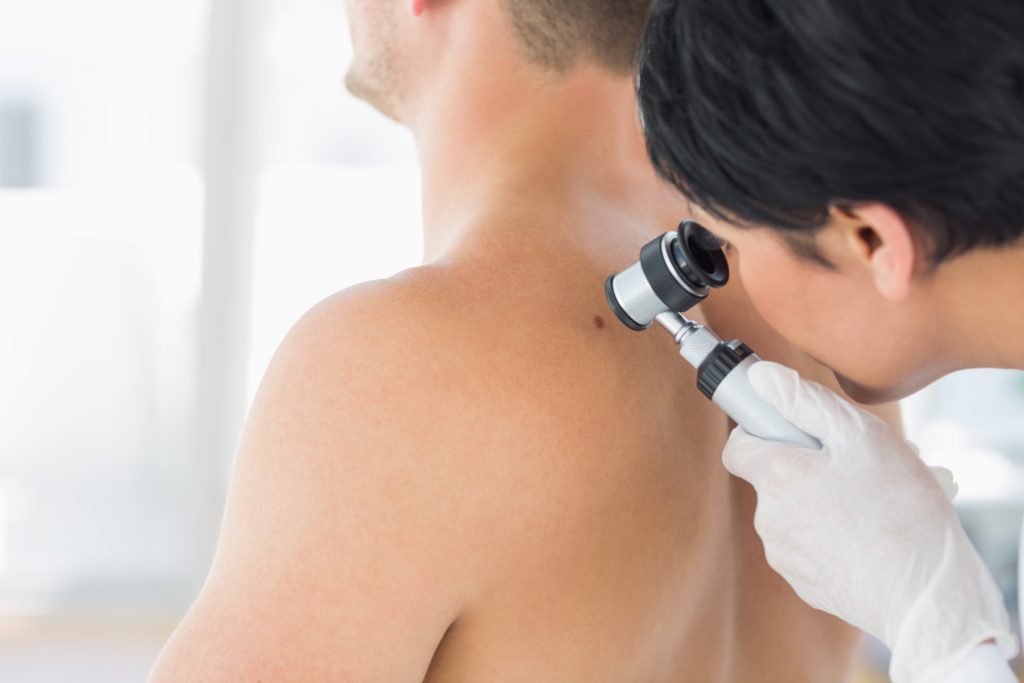
The Australasian College of Dermatologists (ACD) is today (Thursday, September 5) calling for rural and regional residents to seek timely medical advice for their skin health to help manage symptoms, minimise long-term damage, and to ultimately, save lives.
Their urgent plea is preceding the College’s sixth biennial Rural Dermatology Meeting in Orange, NSW tomorrow (Friday, September 6), which aims to unite dermatologists and other key stakeholders nationwide to discuss the challenges faced by the rural dermatology community and the seven million Australians living in these areas.
According to newly appointed College President, Dr David Francis, Brisbane, concerningly, people living in rural and regional communities often fail to seek routine, healthcare professional advice. This may be due to a lack of local medical specialists, limited patient skin health awareness and education, time constraints and associated distance and travel-related costs.
“Australia is the melanoma capital of the world. For rural and regional-based residents, many of whom work outdoors, unprotected from the sun’s harmful UV rays, they are at an even greater risk of exposure to sun damage. Yet despite this, rural and regional Australians often feel the need to “make do”, and have grown accustomed to the absence of a local healthcare specialist.
“Early detection of skin cancer is vital to saving Australian lives. But it’s not just the risk of skin cancer to consider. Australians should visit a dermatologist for a whole range of skin, hair and nail issues that may have serious, and sometimes debilitating consequences on their health,” said Dr Francis.
“The College urges Australians living in rural and regional communities to keep a close eye on their skin, and to visit their local doctor as soon as they notice any suspicious changes. Should they choose to ignore or postpone seeking specialist medical advice, they may be increasing their risk of sustaining long-term skin damage, reducing their chances of accessing effective treatment, and possibly even putting their lives in danger.”
Mother-of-three and self-employed remedial massage therapist, Claire, 43, Orange, was first diagnosed with a melanoma three years ago. She has since had a further two melanomas and several suspicious lesions removed by her local dermatologist.
“When I was first diagnosed with a malignant cancer, I wanted to have it removed immediately. I imagined it growing throughout my body. It significantly affected my stress levels.”
Following the removal of three melanomas by her dermatologist, Dr Michelle McRae, Claire now books three-to-four appointments in advance with Dr McRae.
“One of my melanomas was quite aggressive. That’s why having a three-monthly check-up is now essential for me.
“I book in for regular appointments for a general check of my skin and Dr McRae has taught me how to do regular self-checks at home so I can contact her immediately if I notice anything suspicious,” Claire said.
“Your skin is your biggest organ, and a disease such as melanoma can be so aggressive. It may just present as a spot on your skin. It could in fact, be a cancer that’s spreading throughout your body. Fortunately, melanoma can be curable, and the earlier it’s diagnosed and treated, the better your chance of survival.”
Fortunately for Claire, unlike many regional and rural-based Australians, she does not need to contend with driving hundreds of kilometres to visit a dermatologist, because she lives in the town of Orange.
Given her first-hand experience of melanoma, she is now a strong advocate for raising awareness of the shortage of dermatologists in rural and regional Australia.
To address the workforce shortage of dermatologists in regional and rural communities, the College is working towards offering more opportunities for registrars to complete part of their training outside metropolitan areas.
The College also has a Rural and Regional Committee, comprising dermatologists from non-metropolitan communities, to help facilitate conversations in these areas, ensure their voice is heard, and that they receive access to appropriate support.
The College was pleased to see a focus on rural and regional communities in Australia’s Long Term National Health Plan announced by Federal Minister for Health, Greg Hunt MP, just last month.
Rural Dermatology Meeting convenor and regional dermatologist, Dr Michelle McRae, Orange, understands the multi-faceted role of regional and rural-based dermatologists, and the various, additional challenges they encounter to those working in metropolitan areas.
“It’s important for dermatologists to be appropriately trained to cope with the rural Australian working environment. Due to the substantial and increasing demand for limited dermatology services, workloads can prove unsustainable without support from a broader medical community. That’s why it’s important to have access to a supportive peer network.
“The ability to secure a second opinion from a peer, undertake professional development remotely, and attend conferences to share best practice, can improve a dermatologist’s mental and physical wellbeing, which directly impacts their quality and delivery of patient care,” said Dr McRae.
Concerningly, the Department of Health has projected a shortage of at least 90 full-time equivalent (FTE) dermatologists by 2030, representing a 14 per cent deficit in the projected demand for Australian dermatological services.
With rural areas set to feel this shortage most acutely, an expansion of the training program equivalent to 8.7 full-time training positions each year is required to meet this projected demand for dermatology services.
Dr Belinda O’Sullivan, Research Fellow, Rural Clinical School, The University of Queensland, Rockhampton, has investigated the distribution of medical specialists outside metropolitan areas, and says more can be done to improve services for regional and rural communities.
“One of the most pertinent ways to improve distribution of the regional dermatology workforce is to base more training in regional areas. This not only develops quality practitioners for regional populations, but also ensures there are enough providers for the population demand.
“The opportunities available to specialists working in regional or rural communities are not promoted enough. You can be exposed to diverse and complex clinical cases, and feel like you’re really making a difference, all the while you and your family are living in incredible parts of the country,” Dr O’Sullivan said.
The College promotes the use of teledermatology, an innovative service delivery model whereby a patient’s digital images and clinical data are captured by their GP or other healthcare professional, and securely forwarded to a specialist dermatologist for remote assessment, diagnosis and therapeutic recommendation.
Teledermatology also serves as a successful, complementary mechanism for the training and education of specialist dermatologists and registrars.
“Through telehealth, dermatologists can connect to a wider network of towns as well as receiving additional support from a sub-specialist in a metropolitan area. This ensures they feel part of a wider community practice and don’t feel isolated. Telehealth can also arm them with professional support and professional development opportunities,” said Dr O’Sullivan.
About the Australasian College of Dermatologists
The Australasian College of Dermatologists (ACD) is the peak medical college accredited by the Australian Medical Council for the training and professional development of medical practitioners in the specialty of dermatology. The College is a leading provider of resources for the communication of dermatological topics to the community, media, industry and government. The ACD’s mission is to lead the achievement of first-class dermatology care and skin health for all Australian communities.
To learn more visit www.dermcoll.edu.au.



